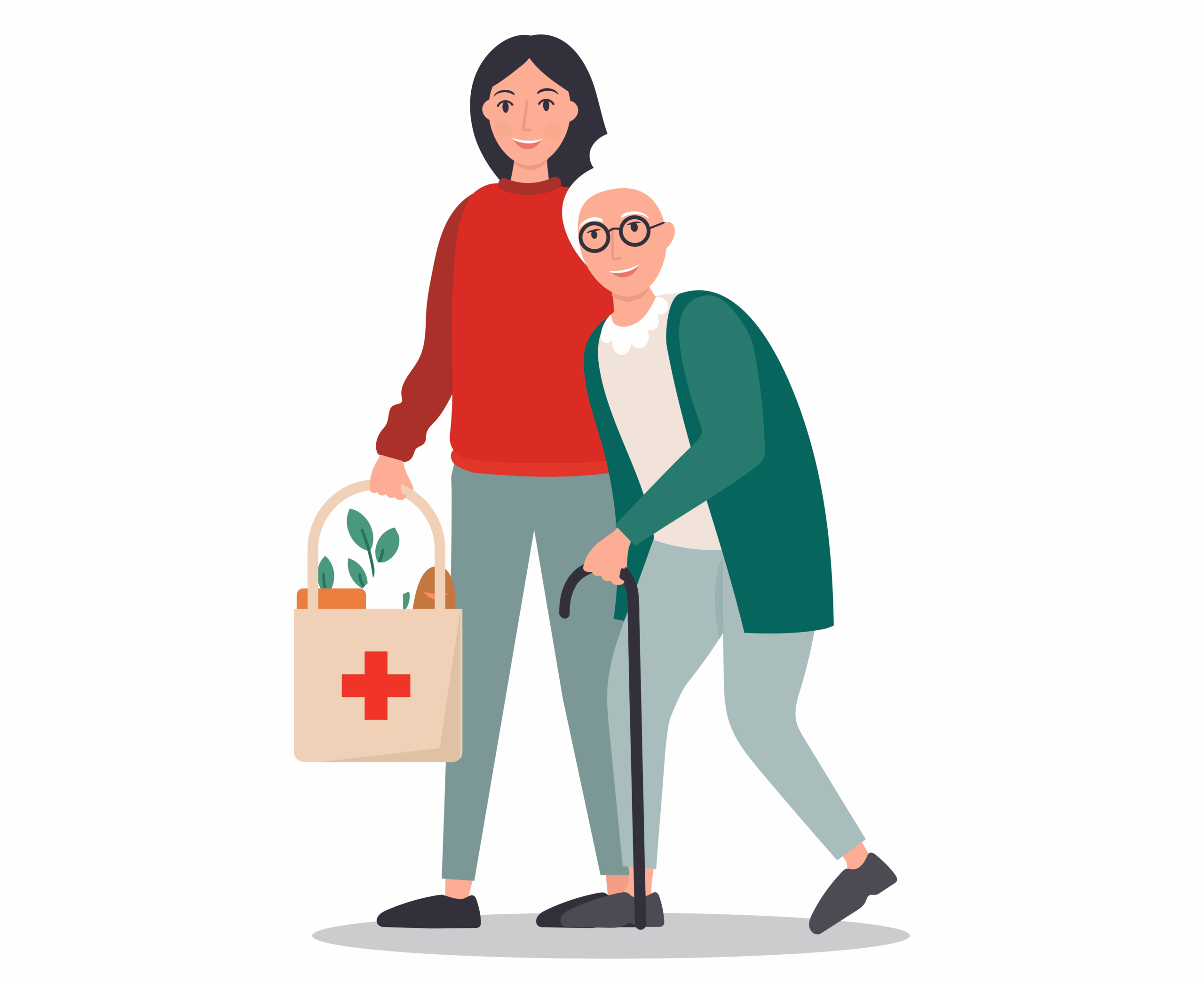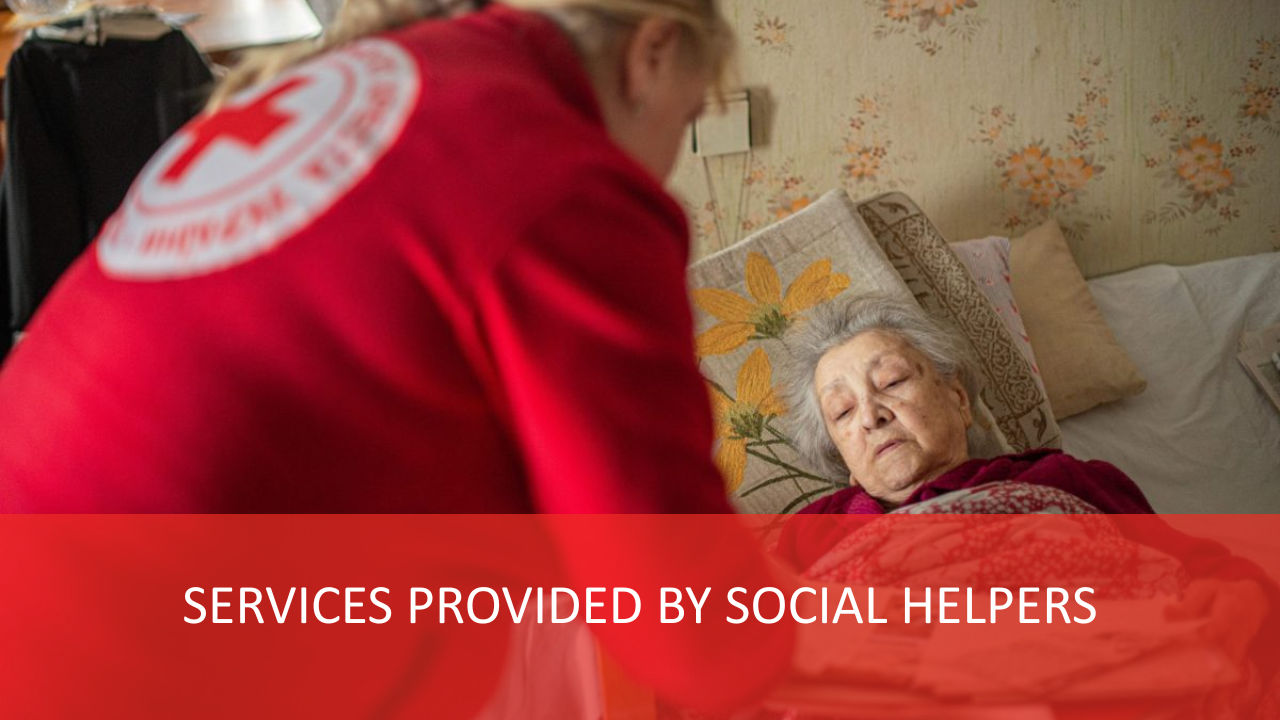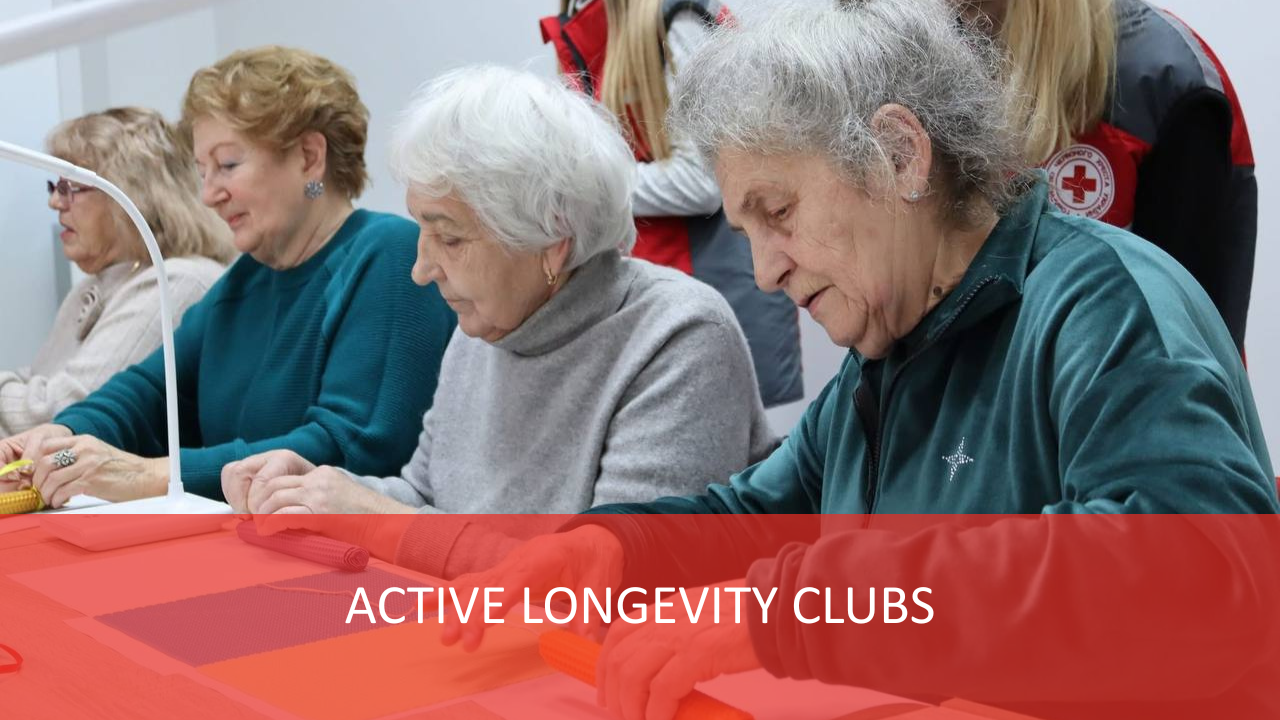SOCIAL SERVICES AND HOME-BASED CARE

Support and Respect for Those Left Alone
A significant segment of Ukraine’s population consists of people who have been without care from loved ones for years. They may be lonely or relatively isolated because their relatives have moved abroad and are physically unable to provide support.
To assist this group and strengthen state social services, social helpers from the Ukrainian Red Cross are currently working across nearly all regions of Ukraine. They provide home-based care for older adults and people with disabilities who struggle to manage their daily needs independently.
The Ukrainian Red Cross’s Home-Based Care programme dates back to 1961 (formerly known as the Patronage Service). For many years, it was only implemented in a few regions of Ukraine. However, following the full-scale invasion in 2022, the programme was expanded to cover the entire country.
Social helpers assist beneficiaries with everyday tasks such as shopping for food or medicine, personal hygiene, cleaning, cooking, and accompanying them to medical appointments. Yet, as feedback from those receiving support shows, the most valuable aspect is the communication, patience, and understanding that create a sense of warmth and care.
The Home-Based Care programme is a clear example of how we support the most vulnerable groups in society, not only by meeting their basic needs but also by providing them with a sense of dignity and respect. Thanks to cooperation with government agencies and partners within the International Red Cross and Red Crescent Movement — particularly the Austrian, British, Canadian, Danish, French, German, Japanese, Norwegian, Swedish, and Swiss Red Cross societies, as well as the International Federation of Red Cross and Red Crescent Societies — we offer vital support to those who have lost hope and face the prospect of loneliness.







The programme currently covers almost the whole of Ukraine, except for the Luhansk region and Crimea. As of today:
Programme Activities Since 2022
For millions of Ukrainians, the start of the full-scale invasion brought not only anxiety caused by shelling and active combat, but also separation from their loved ones. Many were left alone after their children were called up to serve, while others found themselves without the support of relatives who had fled abroad. In response to this challenge, the Home-Based Care team expanded its geographical reach as widely as possible to ensure that no one would be left isolated.
At the same time, the issues of social isolation and community engagement have been addressed through the development of Active Longevity Clubs. Since 2023, these clubs have been steadily opening across western Ukraine, providing older adults with opportunities to connect with like-minded people, find support, and regain a sense of safety.
ACTIVE LONGEVITY CLUBS
Loneliness affects thousands of older people across the country. Many are left isolated due to relatives relocating to other regions or abroad, among other reasons. In response to the challenges of social isolation and lack of community engagement, the Ukrainian Red Cross is establishing a network of Active Longevity Clubs as part of its long-term care initiatives. The primary aim of these clubs is to promote an active lifestyle, dignity, and safety for every individual.
Active longevity is an approach to ageing that supports the physical, mental, and social well-being of older adults. In line with the World Health Organization’s vision of active and healthy ageing (WHO Active Ageing Framework), this approach focuses on three key objectives:
- Health;
- Participation;
- Security.
Promoting regular physical activity, healthy nutrition, and disease prevention forms a crucial part of maintaining good health. Social inclusion means supporting older people’s participation and interaction within their communities to prevent isolation and loneliness. It also ensures their protection, safety, and rights across social, financial, and humanitarian areas.
Lifelong learning and personal development remain essential throughout life. Mental well-being is strengthened through active involvement in community life. Additionally, volunteering and engagement in community projects empower older adults to feel valued and needed. Feeling socially connected and supported by peers and society enables them to play an active role in offering assistance during crises or emergencies.


